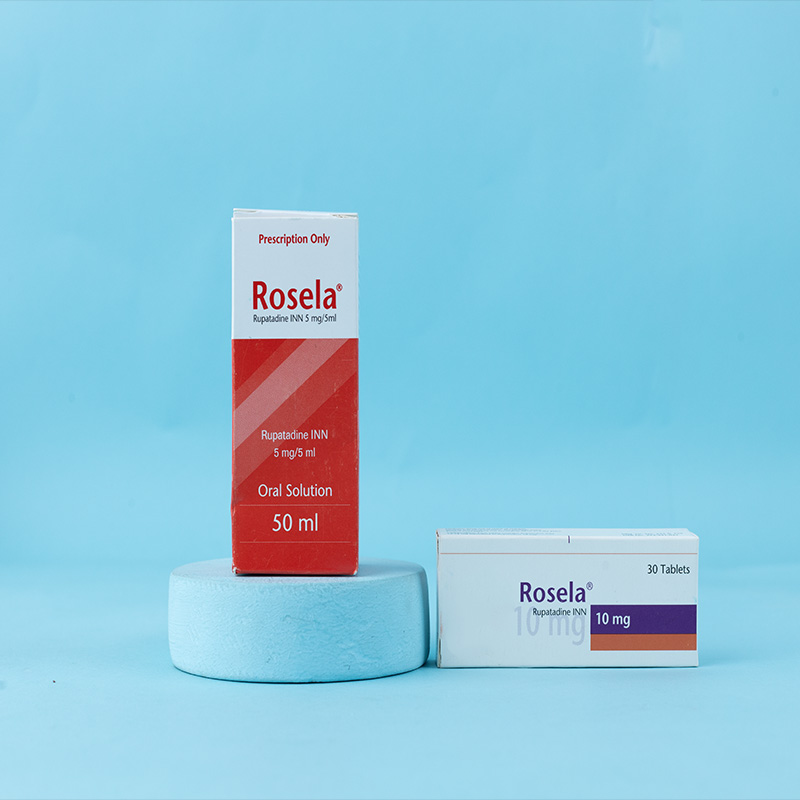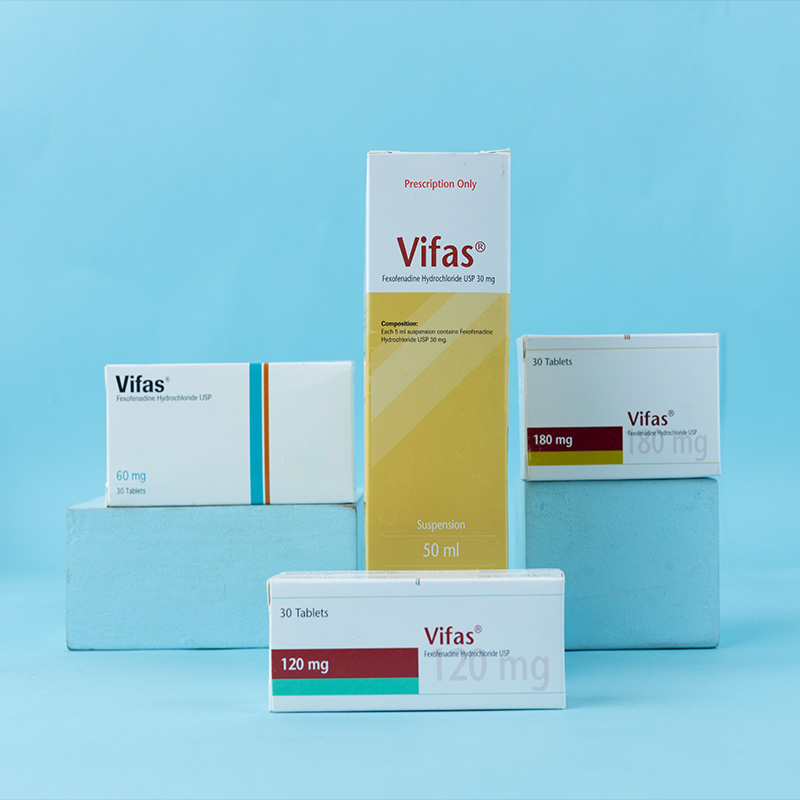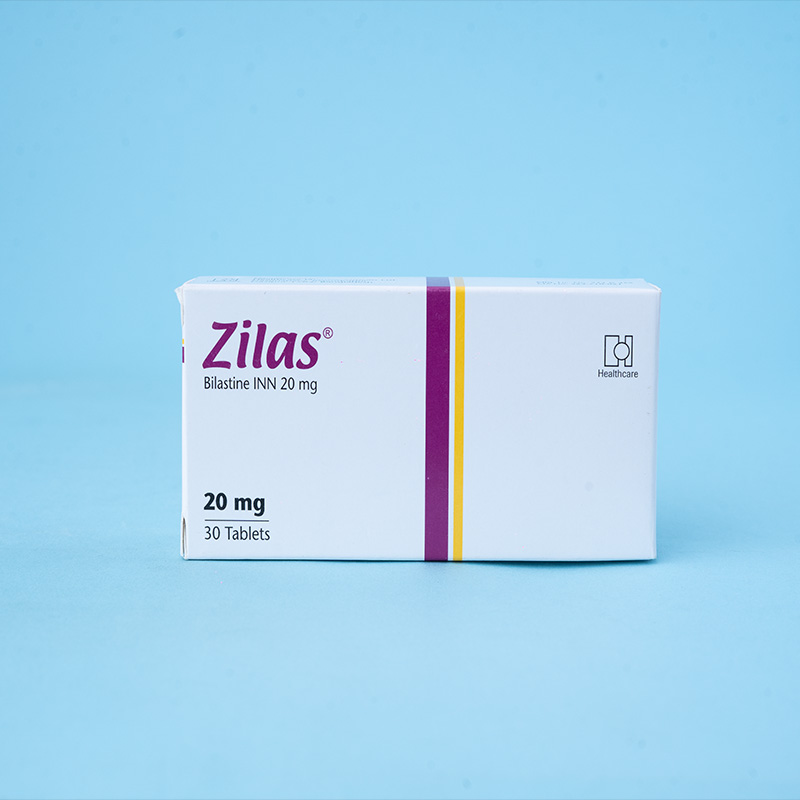Rosela® Oral Solution: Each 5 ml of oral solution contains Rupatadine Fumarate INN 6.395 mg, equivalent to Rupatadine 5 mg.

Rupatadine is a non-sedating anti-allergic compound with strong antagonist activity toward both histamine H1 receptors and Platelet-Activating Factor (PAF) receptors. PAF and histamine are known to complement and promote each other's secretion. PAF induces vasodilation and increases vascular permeability, which may cause rhinorrhea and nasal congestion. PAF is also believed to play a significant role in the late-phase allergic reaction. Rupatadine's PAF antagonistic activity likely inhibits eosinophil migration, which is beneficial in treating chronic urticaria.

Rupatadine is indicated for the symptomatic treatment of:
Seasonal and perennial allergic rhinitis
Urticaria

Children aged 2 to 11 years:
Weighing ≥ 25 kg: 5 ml (5 mg Rupatadine) of oral solution once daily, with or without food.
Weighing < 25 kg: 2.5 ml (2.5 mg Rupatadine) of oral solution once daily, with or without food.
Administration to children under 2 years of age is not recommended due to lack of data.
Adults and adolescents (over 12 years):
The recommended dose is 10 mg (2 teaspoons or 10 ml oral solution) once daily.

Common side effects include:
Sleepiness
Headache
Dizziness
Dry mouth
Fatigue
Asthenia
Contraindications
Rupatadine is contraindicated in patients with hypersensitivity to Rupatadine or any of its excipients.

Use Rupatadine with caution in elderly patients (65 years or older) with known prolongation of the QT interval, uncorrected hypokalemia, or ongoing proarrhythmic conditions such as clinically significant bradycardia or acute myocardial ischemia.

Pregnancy: Classified as Category B2 (proposed by the innovator to TGA, Australia). There is no clinical data on Rupatadine exposure during pregnancy. Pregnant women should use Rupatadine only if the potential benefit justifies the potential risk to the fetus.
Lactation: It is unknown if Rupatadine is excreted in human milk. Use during breastfeeding only if the potential benefit to the mother outweighs the risk to the infant.
Geriatric Use
Use Rupatadine with caution in elderly patients (65 years or older) due to limited clinical data.
Renal and Hepatic Impairment
Rupatadine is not recommended for patients with renal or hepatic insufficiency due to a lack of relevant clinical data.

Concomitant administration of Rupatadine (20 mg) with ketoconazole or erythromycin increases systemic exposure. Use with caution when co-administered with these drugs or other inhibitors of CYP3A4.
Use Rupatadine cautiously when co-administered with statins, CNS depressants, or alcohol.

No cases of overdose have been reported. In clinical safety studies, doses of 100 mg/day for 6 days were well tolerated. The most common adverse reaction was mild somnolence, which was not clinically significant.

Store at temperatures not exceeding 30°C in a dry place.
Do not freeze. Protect from light.

Rosela® Oral Solution: Each bottle contains 50 ml of oral solution with a measuring cup.
Medicine: Keep out of reach of children.







